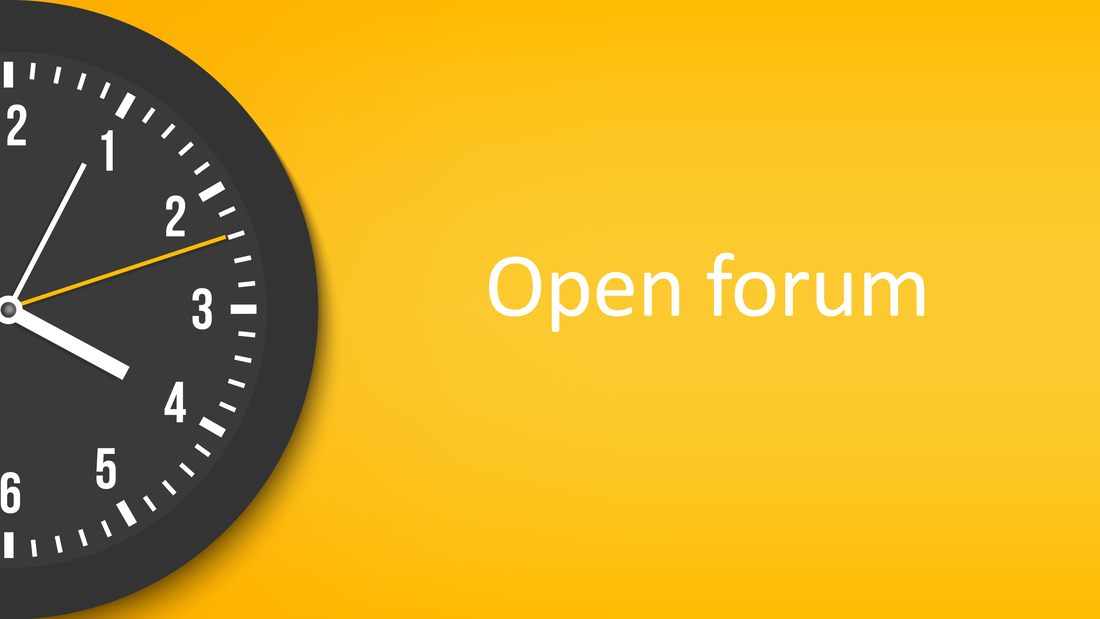|
Several times in the past year, I have been asked for advice, even to intervene, in situations where relationships between board members have become strained, or shareholders have fallen out—with each other or with board members—over differing expectations around returns and/or succession. Each situation has been both complex and demanding, for they involve people and human emotion. The following vignettes are illustrative of the types of things that can go wrong and the ensuing behaviours of various actors:
As is typical in board and shareholder matters, options are many and resolutions are far from clear cut. What options might a capable independent director consider in such circumstances?
These are questions of commitment and duty. Directors need to not only recognise this, but consider options amidst ambiguity, and work within the constraints of the law and what is ethically acceptable. Essentially, these questions ask how far a director is prepared to travel, how hard they are prepared to work, how long they might prepared to wait before enough is enough. Are they prepared to make decisions that may be unpopular or even unpalatable, because such decisions are in the best interests of the company? Will they go to the ends of the earth, so to speak? Or does the preservation of reputation rank more highly than acting in the best interests of the company—essentially, will they bail when the possibility of reputational damage arises (as several directors of Wynyard Group reportedly did just before the company failed several years ago)? Directors would be well-advised to have asked themselves these questions before they accept an appointment. They should also be prepared to act (step away) if the thresholds they set themselves are surpassed, or if they no longer have the expertise or courage to act. Of the directors you know, how many possess the wisdom and maturity to act diligently, in the best interests of the company?
0 Comments
A few weeks ago, while facilitating a board masterclass at Naivasha, Kenya, I had the good fortune to see some local wildlife at close range. Some people consider walking in close proximity to wild animals to be dangerous, for it may portend harm or injury, but others embrace the activity with open arms. Thinking, that well-spring from which ideas and insights emerge, innovations are birthed, and humanity progresses and flourishes, is similarly polarising. One of the things I have been thinking about recently is quite selfish: What direction should I take my writing in 2024? Musings is nearly twelve years old (first entry was in March 2012, which coincided with my doctoral research efforts, and sharing of conference papers and articles). While the longevity makes it a rarity, my motivation has not changed. It has been to share thoughts on corporate governance, strategy and boardcraft; our place in the world; and other topics that catch my attention. Apart from the introduction of 'boardcraft', a word I coined in 2020, this overarching goal has remained consistent since day one. From humble beginnings, when entries garnered just a few readers, the blog is now widely read. Over the years, many readers have been graciously engaged in a discussion about a topical matter, or asked for help to realise potential. And that has been wonderful, thank you. And, as you might expect, some entries have garnered high attention; others less so. Readers seem to prefer pragmatic guidance over provocations or calls to think more deeply about something. Recent examples of the former include writings on questions, chairmanship, and storytelling. Now, as we stand on the cusp of 2024, my hope is that Musings remains relevant and useful into the future. And with that, may I ask a favour? (Actually, provide an opportunity, to crowdsource Musings!) What topics and style would ensure Musings remains relevant and useful as it moves into its teenage years? Do respond in the comments block below, or send me an email. And, thank you in advance.
Twice this week, I have been asked about my reading and thinking habits. One enquirer wanted to know much time I spend reading and pondering insights garnered from various authors; the other whether I schedule [slow] thinking time. Although neither asked explicitly, both enquirers seemed to assume that quiet time and the notion of reading widely are important to me. And, indeed they are. But, why? The practice of reading serves, I think, two inherent objectives: to maintain currency with trends and developments, and to become a better person. The objective is not to become a technical expert capable of regurgitating data and ideas (ChatGPT can do that), but a more holistic thinker—one who discerns problems and opportunities, considers them from different perspectives, asks appropriate questions and draws relevant conclusions. More succinctly, someone who leads a reflective life. May I propose something? To philosophise is to breathe. In my experience, and that of others who I have been fortunate to interact with, the ideas that emerge from the practice of philosophising provide a solid foundation for that which follows. And yet many business leaders and board directors claim to be too busy to take time to ponder (think about) possibilities that might lie below the surface or around the corner. Quite why such a (seemingly) bedrock activity is neglected is a curiosity to me; high quality thinking is an antecedent of effective leadership and governance, n'cest ce-pas? When people I interact with, especially friends and clients, say they see a better me (someone who is on top of his game, is nice to be around and who offers relevant and considered advice), such observations tend to coincide with a period of reading literature (or other so-called 'brainy' books) and thinking deeply about the questions posed by the authors. While comments like this are gratifying, they serve a higher purpose: to remind me to make time, regardless of what else is going on around me. (And, in case you are wondering, my answers to the enquirers were, "About 12–15 hours each week" and, "Yes.")
Diversity of thought has been widely promoted in recent times, as a mechanism to supposedly increase decision quality in boardrooms. Superficially, the idea of thinking differently is a positive evolutionary development from earlier efforts (think: women on boards) to break what is often described as the Old Boys' Club. That the discourse and intent has begun to move beyond appointing directors on the basis of physical attributes is helpful. And yet, the idea of 'diversity of thought' has long troubled me. How does anyone know what I am thinking, or anyone else in the boardroom for that matter? And what is diversity in this context anyway—me having different thoughts, or several of us thinking differently? Crucially, what of any link to the board's work and purpose, which is to provide steerage and guidance to achieve a strategic goal? Researchers have published correlations based on specific datasets, but the general case (a reliable linkage between demographic diversity and organisational performance) remains elusive. The somewhat amorphous 'diversity of thought' is similarly afflicted. Recently, cognitive diversity (that is, different ways of processing information and approaching problems) has been suggested as a more reliable mechanism to achieve higher quality decisions and, by implication, outcomes. This sounds positive, but reliable explanations are yet to emerge. Why is this so hard? Could the paucity of reliable explanations (of the relationship between board work and company performance) be due to researchers, directors' institutions and others trying to explain board work and develop 'best practice' models looking in the wrong place or using inappropriate tools? What if hypothetico-deductive techniques (in search of a deterministic best practice approach to some aspect of board work) are laid to one side and methods more common in social science used (critical realism or contingency theory, for example)? Should researchers embrace the idea that boards are social organisms, and that governance is a mechanism activated by the board? For the record, I employed critical realism, long-term observational techniques and contingency theory when researching boards a decade ago, as part of my doctoral research. The study was ground-breaking for it revealed new insights about board work including an explanatory framework. If you want to learn more about this study, check my thesis (academic-speak) or this article (plain-speak). In the past few weeks, I have picked up the question again (thanks to a wandering mind on long haul flights!), and have begun to wonder if fractals and chaos theory might offer a viable pathway to developing a theory of board work. Whether this might be a fruitful search or a blind alley remains unclear. Regardless, my mission is to help boards govern with impact, so the least I can do is dig further. And dig I shall. One request: If you know about fractals, or know of anyone who possess such expertise—especially in relation to social phenomena—could we schedule a call please? I'm starting from a pretty low base!
One of the great challenges for board directors and executive leaders concerns written expression. How might one cast vision, report progress clearly, make a request unambiguously, or argue a point convincingly if the key messages are not clearly stated? Directors and executives owe a duty to their colleagues in this matter, for written reports are the primary vehicle for sharing ideas, proposals and data before each board meeting. To suggest the quality of the report (especially, the clarity of the message within) may be the difference between success and failure (that is, acceptance or rejection) is, probably, a truism. So, if we are to be convincing in our argumentation, we need to write well. But how? The first thing to acknowledge is that writing is a craft. And, as with any other craft, proficiency is something that emerges over time, as principles are learnt and applied in practice. Look to others who write well, and glean from them. Seek feedback from your readers too, and make adjustments. I have long relied on the guidance of William Zinsser (1922–2015), especially that offered in On writing well. Another great source is the Blue Book of Grammar and Punctuation, which provides specific instructions. How do you ensure board reports and business proposals are well written, and what tools and approaches do you use?
Do you have a question about governing with impact, or driving organisational performance?22/8/2023 One of the great joys of being an independent advisor is the opportunity to spend time with people from a wide range of backgrounds; business and social experiences; walks of life; and, in my case, countries and cultures. The depth and breadth of humanity never ceases to amaze me. Paradoxically, a common thread runs amongst the diversity: people intent on improving organisational effectiveness and making a difference spend lots of time asking questions, lots of questions. When a question is asked from the floor after a keynote talk, during an advisory engagement or professional development workshop, or as part of a confidential discussion or informal chat, something mysterious happens: Both parties learn! This should come as no surprise, for no one has all the answers—although some people behave as if they do. Recently, I posed several questions board directors may wish to consider. The response to that musing has been overwhelming, so I thought an open invitation might be in order. If you have a question about any aspect of corporate governance, strategic management, board craft or the challenge of governing with impact—either personally or on behalf of a board you serve on—please ask and I will gladly respond. Use the comment link here or, if you prefer, send an email. Let's learn together!
The role of company director has become quite visible over the past couple of decades. From hardly rating a mention in the popular press or polite society fifty years ago, public awareness of boards and directors has blossomed in recent times. Questionable practices and failures of various kinds have seen boards become a source of board fascination and disdain—targets of criticism in the eyes of the business media, political class, regulators and, increasingly, the wider public. Activists, institutional investors, proxy advisors, and other stakeholders and supernumeraries have sought to exert influence and press various claims too, on both company priorities and board decision making (think: ESG, disclosures, DEI, climate change, net zero, and more besides). While some boards have responded well to changing circumstances, others have battened down the hatches. Defensiveness can be an important response at times, but it is not a sustainable tactic given the mandate to govern (provide appropriate steerage and guidance to achieve a specified goal). If directors are to steer and guide effectively, they need to consider information, ask questions to check progress and elicit missing information and, having debated various options, make decisions. This is crucial, for the questions directors ask may be the difference between effectiveness and ineffectiveness in role. The following list provides a useful starting point for boards intent on governing with impact:
Do you agree or disagree—I welcome your thoughts on this! Also, what other questions have you found useful?
I have spent four days in Australia this week, meeting with directors, advisors and a couple of institutional leaders in two state capitals. While the weather has been great, a few storm clouds [metaphorically, on the governance horizon] were apparent. Whether these are serious problems, or just differences of opinion, they strike me as being worthy of discussion. I’d be delighted if you would ponder the following situations, and share your thoughts to help me understand why boards, more often than not, erode value.
These examples demonstrate, to me anyway, that questions of what corporate governance is, the role of the board and how governance might be practiced are far from resolved. Directors and their advisors seem to be their own worst enemies. Flawed understandings of what governance is (the provision of steerage and guidance, to achieve an agreed strategic aim), and how it might be practiced, remain serious barriers to boards fulfilling their mandate, which is to ensure the enduring performance of the company. Why do some directors’ institutes, advisory and consulting firms, regulators, academics, and media commentators continue to discuss “best practice” and promote various matters that have little if any direct impact on achieving sustainably high levels of organisational performance? Surely attention needs to be on helping directors and boards do their job well, n’cest ce-pas? I have a few ideas to crack this problem, but I’m keen to hear what you think.
Several times in the past six weeks, I have been asked to share some thoughts on artificial intelligence and board work; specifically, the impact of emerging AI capabilities on corporate governance and, even, the need for board of directors. The rapid emergence and now widespread awareness of ChatGPT has been a catalyst for many of these enquiries, it seems. I have been fascinated by the unfolding situation, not only because of a longstanding interest (I studied artificial intelligence at university nearly four decades ago), but also the speed by which awareness has spread, and expectations climbed to such stratospheric heights, is unprecedented. Claims have been made that computer-based tools will soon supplant the need for human directors and, with it, board meetings. Some, especially those with jaundiced perceptions of boards, their work and any value they add, have confided this may be a good thing. Others have reserved judgement—for now at least—saying the situation is far too fluid and complex to make anything approaching an informed or reliable decision, much less widespread change. That so many people are questioning 'conventional' corporate governance practices feels a little bit like ground hog day. While I do not claim any particular expertise in the topic of artificial intelligence, I have read widely, asked many questions (of myself and others) and pondered both the purported capability and potential impact (of artificial intelligence) on board work. The departure points for my enquiry has been, as always, definitional. What is artificial intelligence, and what conception of governance does one hold? My responses to these questions are as follows:
So, the proposition to be considered is, "Can a computer replace a social group charged with steering and guidance an organisation in a complex and dynamic environment?" Those people wondering whether AI might be a viable mechanism to support or even replace boards have much to ponder. What is the role of a board of directors in companies? How might the operating context beyond the organisation be assessed? Where does accountability for statutory compliance and overall performance lie? And, to whom should the Chief Executive and management of the company report? If one holds the view that the board is the ultimate decision-making authority within a company (a responsibility delegated by shareholders), and that this (decision-making despite uncertainty and ambiguity) is 'core business', the board has a vital role to play. My early training in computers and technology taught me that computers respond to instruction; they cannot 'think' autonomously or handle ambiguity, and they lack feelings and intuition. They do what they are 'told'; if the 'telling' is poor, the result is likely to be poor: the phrase "garbage in, garbage out" springs to mind. But that was then. Computing power is far greater today than it was even five years ago, much less forty. Has the evolutionary development of computing capability reached the point whereby computers can displace humans? For a large and growing list of tasks and activities, yes, of course. The analysis of data is a relevant case in point. But for many other enquiries, the answers remains a resounding no. How might a computer make sense of the unspoken feelings, intuition and biases of staff, customers and board directors, and reach a credible decision? For this, a much higher order of capability is necessary. And, with that, I stand with those reserving judgement. What of the future? AI may become a viable mechanism to expedite board decision-making, of course. But the likelihood of directors being supplanted any time soon is low (those failing in their duties excepted). For that, artificial general intelligence (AGI) is likely to be necessary, and some moral and ethical questions will need to be resolved as well. If that is achieved, I may take a stronger position. Regardless of whether this muse is sound or not, directors, shareholders, regulators and their various advisors need to be alert, because the situation may change quite quickly.
The practice of corporate governance has garnered much attention over the past couple of decades; curiosity about boards growing each time news of a corporate failure and serious misstep becomes public. While those with axes to grind are quick to jump on their hobbyhorses, failure studies indicate that suggestions of hubris, malfeasance, narcissism, ineptitude, incompetence and poor engagement are not without basis. More recently, a wider group of so-called stakeholders and claimants have raised their voices, arguing that companies are having a negative effect on a range of social and environmental concerns. The ESG initiative, established in 2005 to put pressure on boards to report their activities and performance more fully, has become a movement (even an industry for personal and professional gain in the eyes of some). On the weight of evidence presented in the media, it would be easy to conclude that practices of companies, and the system that underlies modern commerce—capitalism—are detrimental to sustainable life and wellbeing. Firing shots at boards and companies is easy, because they are visible and command media attention. But are such responses justified? What if the assumptions and motivations that underpin investor, regulator and activist critiques are flawed, or the bases for regulatory interventions ill-advised? Some companies deserve criticism, of course. They should be called out and held to account. But many (most) operate within their means. Unsurprisingly, the boards of some reputable companies are reportedly pushing back on the expectations of some institutional investors, which, they say, have become over-prescriptive and formulaic. Alongside, some boards say new disclosure reporting rules being introduced, by the FSB Task Force on Climate-related Financial Disclosures (TCFD) amongst others, are counterproductive—for they add costs without any apparent benefit. Together, this begs an awkward question: Are the actions of some, who claim to be acting in the name of sustainability and a fairer society, actually an attempt to exert power and control for their own purposes? And, if so, are current attempts to establish regulations to enforce certain practices on companies reasonable or are they a bridge too far? It is little wonder that relationships between some boards and shareholders are starting to fracture, and society is becoming tribal.
|
SearchMusingsThoughts on corporate governance, strategy and boardcraft; our place in the world; and other topics that catch my attention. Categories
All
Archives
May 2024
|
|
Dr. Peter Crow, CMInstD
|
© Copyright 2001-2024 | Terms of use & privacy
|











